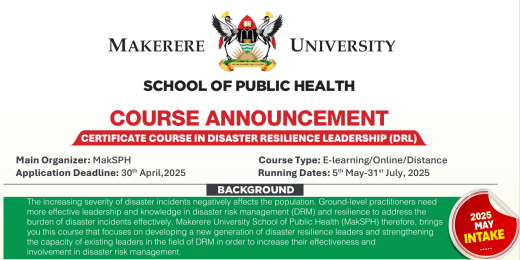
Makerere University School of Public Health (MakSPH) invites professionals, practitioners, academics, and leaders in disaster resilience, humanitarian work, and development programming to participate in our Certificate Course in Disaster Resilience Leadership (DRL). Use the Link below to apply:
Certificate Course in Disaster Resilience Leadership


